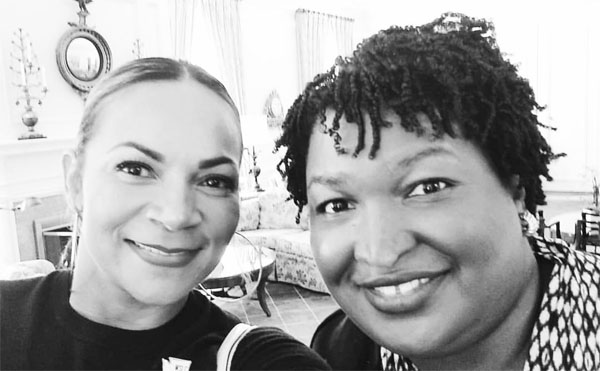OPINION
April Sims: It’s a movement, not a month
As we honor Black and women’s history, I work toward a labor movement that supports and lifts up all workers, but particularly Black women.
By APRIL SIMS
(April 1, 2021) —When I use “women” throughout, I mean all women: women of every race, across any border; transwomen; disabled women; and all others that want to claim the mantle of womanhood. In the words of Lizzo, “if you feel like a girl, then you’re real like a girl.”
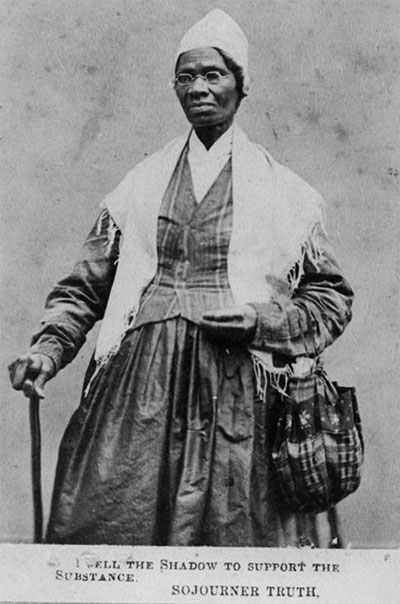 In February and March, we celebrate the histories of members of our society who are too often ignored or silenced. I’m conflicted about this way of marking our history. First, the history of Black folks and women cannot be confined to two months.
In February and March, we celebrate the histories of members of our society who are too often ignored or silenced. I’m conflicted about this way of marking our history. First, the history of Black folks and women cannot be confined to two months.
But more fundamentally I think about Sojourner Truth’s famous question, “Ain’t I a woman?”
I am Black and I am a woman. My Blackness helps form my womanhood, and my womanhood helps form my Blackness. These are inseparable for me, as they are for many Black & Indigenous women, and women of color. Which parts of me do I decide to celebrate in February? Which in March?
But in a world where white and male is (still) the norm, these complexities, these intersections, aren’t considered. In fact, the fullness of our lives as Black women, as women of color, is regularly ignored in favor of focusing on our generational trauma, even by folks “on our side.”
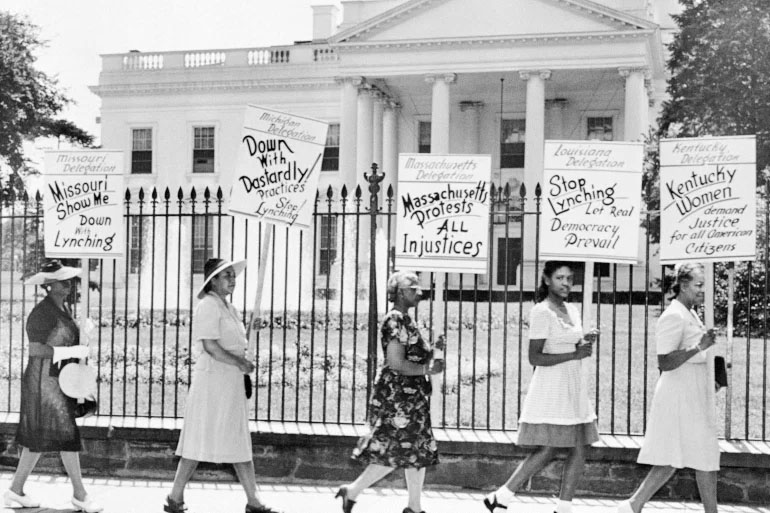
Picketers representing the National Association of Colored Women march past the White House on July 30, 1956, protesting the lynching of four Black people in Georgia.
Think of what we commemorate in Black history, in women’s history. We know of slavery, or systemic disenfranchisement — the deprivation of basic rights and the violence deployed to enforce this treatment.
We know the statistics, the litany of all the ways our world is built against Black or brown women. We know the ways dominant culture tries to limit and silence women of color, to tell us we’re too intense, too loud, too much.
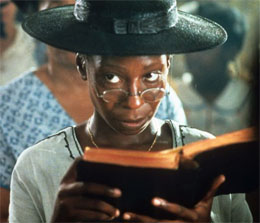
Whoopi Goldberg in The Color Purple
And often when we’re heard, it’s stories of our trauma, pain, or deprivation that capture attention. Think of what movies about the Black experience, about being a woman get Oscar nominations, what books get published and assigned to school kids. Trauma and hurt are real. But we are more than the violence inflicted against us.
This isn’t to say that we ignore the trauma. We couldn’t if we wanted to, when current events dredge up the ghosts of past violence and injustice. This past week as we marked the 56th anniversary of the Selma to Montgomery march, we saw Georgia Republicans push through a Jim Crow-style anti-voter law — and state troopers dragging away the Black woman state legislator who was advocating for her constituents whose voting rights are under direct attack. The targeted killings of Asian women in Atlanta this past month called up the painful history of explicitly anti-Asian — specifically anti-Asian women — laws in this country.
This cyclical, generational trauma is real. But it does not define us. Our stories are complex, stories of resilience, of innovation, of creativity, of choosing joy and hope.
These complexities are our history. The Bread & Roses mill strike of 1912, led by a multiethnic coalition of women, was one of the most significant labor events in the 20th century, a resounding demonstration of the power and resiliency of working women united across race and creed. The innovative and creative mother of investigative journalism, Ida B. Wells, and her investigations into abuses in mental health hospitals and lynchings of Black men paved the way for journalism as we know it. The multi-ethnic partnerships between Latinx and Asian Americans that formed the core of the 20th century farmworkers’ rights movement have been a guide for successful organizing in the present.
Because these complexities are our present, too. The legendary organizing of Black women across Georgia delivered a Democratic Administration and Congress. Indigenous and working class, rural women fighting the construction of damaging pipelines have changed our conversation around energy and natural resources. Creatives, artists, and healers are expanding our conception of what organizing can look like, and can accomplish (check out our Labor of Love awardees and their work making the revolution irresistible, to paraphrase Toni Cade Cambarayou). We’ve seen Black women lead the surge in the Movement for Black Lives across the country, and women of all races stepping up to lead racial justice trainings for the movement here in Washington.
We see that some of our most critical fights are those that uplift women of color, driving positive change for all of us. We see it in the strikes in Yakima fruit packing warehouses, the dedicated organizing of Familias Unidas por la Justicia, Trabajadores Unidas por la Justicia, and the United Farm Workers that has centered farm workers in our support of essential workers (you can support their fight by emailing your State Representatives and urging them to pass SB 5172, removing the overtime exemption for agricultural workers in WA). The Marshallese women blowing the whistle on dangerous working conditions in their community and the predominantly-WOC membership of UNITE HERE 8 winning call-back rights post-pandemic, demonstrating the power of working people united. And the historic and invigorating union drive at the Bessemer, Alabama Amazon facility, led by the predominantly Black and POC workers, demonstrating that multiracial, POC-led movements can threaten the power of our most entrenched corporate billionaires — even in the deep South.
So, in February and March, I choose to celebrate the power and strength of Black folks and of women — especially of Black women.
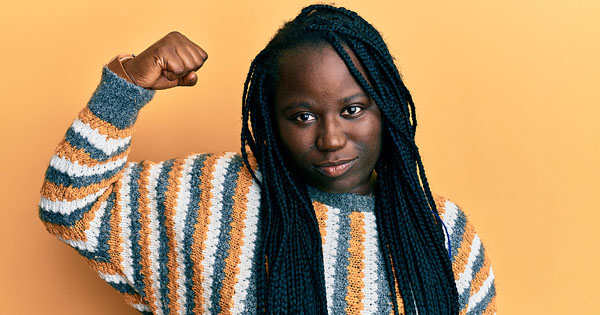
I know — and I hope y’all do, too — the strength of Black women is an unstoppable force. But we are people, human beings with the complex inner and outer lives that humanity entails. None of us can always be strong — none of us should be. A movement that supports and uplifts women, especially Black & Indigenous women and women of color, is one that makes space for all working people to bring their authentic selves to our movement. A movement where Black women don’t always have to be strong, because we know our siblings in Labor will be strong for us.
This is what I work towards: a labor movement defined by our resilience, our creativity, our hope, and our joy, a labor movement that follows and supports the leadership of our most impacted members. One day, that will be the history we commemorate.
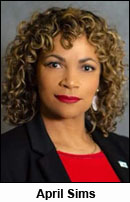 April Sims of Tacoma is Secretary Treasurer of the Washington State Labor Council, AFL-CIO.
April Sims of Tacoma is Secretary Treasurer of the Washington State Labor Council, AFL-CIO.

